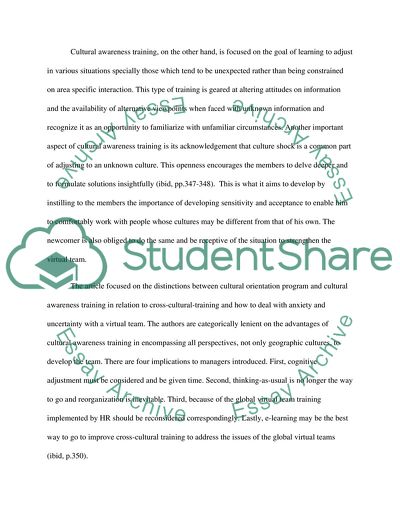Cross-cultural Training for Global Virtual Teams Research Paper. Retrieved from https://studentshare.org/social-science/1783059-different-types-of-training
Cross-Cultural Training for Global Virtual Teams Research Paper. https://studentshare.org/social-science/1783059-different-types-of-training.


